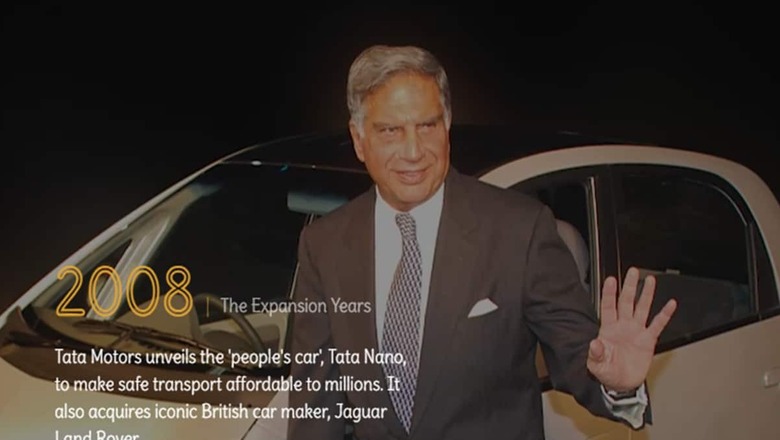
views
In 2003, Ratan Tata, a forward-thinking businessman, had a bold dream: to create a safe and affordable car for India’s growing middle class. This vision led to the creation of the Tata Nano, known as the “people’s car,” which represented a commitment to improve the lives of many.
What inspired Ratan Tata to develop this incredible car?
In the early 2000s, Ratan Tata visited a dealership in Bangkok and saw families riding scooters with their children sitting on their laps. This experience motivated him to design a small, affordable, and safe car for the Indian middle class.
The Tata Motors team worked hard to create a vehicle that was both economical and safe. They built a car that could comfortably seat four people and had a fuel-efficient engine. They named the car ‘Nano,’ meaning ‘small’ in Gujarati.
The Launch
After extensive development, the Tata Nano was revealed in January 2008 at the Auto Expo in New Delhi. The car made headlines worldwide due to its low price and compact design. It was promoted as a solution to India’s increasing need for affordable personal transport, with plans to sell it not only in India but also in other developing countries.
From West Bengal to Gujarat
The Tata Nano was initially launched in West Bengal, but after achieving commercial success, production was moved to Gujarat. This change happened because of the tense political situation in West Bengal in 2011.
The Nano’s Legacy: Affordable Innovation
In 2009, the Tata Nano was finally launched, capturing global attention with its affordability and innovative features. Despite some initial challenges, Tata Motors sold over 275,000 units of the Nano by 2018, marking a remarkable journey from hardship to success.
The car gained immense interest around the world for its price and design. At first, there was a wave of bookings, with tens of thousands of people eager to buy it. The Nano was viewed as a major step forward in affordable transport, especially for first-time car buyers in India.
Even though it faced commercial difficulties, the Tata Nano remains a symbol of ambition and innovation. It set new standards for cost reduction and paved the way for more affordable cars worldwide.




















Comments
0 comment